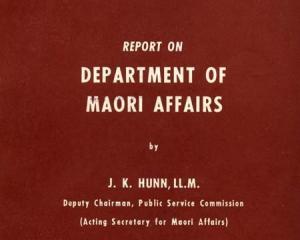Otago Daily Times reporter Sarah Marquet met two former New Zealand Catholic priests who have been making a difference for those people in and around Seoul.
In the mid to late 1980s, as South Korea prepared to host the Olympic Games, thousands of people were suddenly made homeless in the name of development.
Many of them were refugees of the 1950-54 Korean War and others had been displaced from their inner-city homes to make way for high-rise buildings.
With little or no money and just as few rights, these people had few options. Enter Robert Brennan. Fresh out of the Columban seminary college in Sydney, 25-year-old Fr Brennan was dispatched to South Korea in 1965.
After working in one of the country's poorest areas for about 15 years, he was sent to the Mokdong area, to the Mokdong Catholic Cathedral, in western Seoul.
It was just one place where thousands of people had made their homes in slum areas lining a small and polluted river. But the
city government wanted to build a highway through the area, linking Gimpo Airport with the city centre, and it did not want visitors to see the slum.
The people were effectively forced from their homes by police and city officials.
''I found myself thrust into the middle of it ... and it whet my appetite for the whole question of redevelopment housing rights, especially renters and renters' rights.''
He opened the church gates for the once again homeless, forming the Mokwha Village. His four-year stint there was the beginning of what turned into a law-influencing campaign for housing rights.
''Nothing was won there, people were just bulldozed out and bit by bit those areas were declared for redevelopment.''
It did, however, serve to highlight the ruthless redevelopment policy of the then government. It was also a learning curve for the now 72-year-old and, in the next area to suffer this fate, he knew they had to organise early and begin lobbying the Government.
''Over the years, we have managed to get the law changed and now when an area is redeveloped, they have to build rental apartments but the problem with that is that rental apartments are so tiny that a family can't live there.
A couple on their own could, or a young married couple, but they're basically one-room apartments and no good for a family with teenagers so, in a lot of ways, for a lot of people, there's no help.''
Now, too, the rights of the renters are recognised, not just those of the landowner, he said.
''What often happens is that the owners of the properties in an area want it redeveloped because the land value will go up but the renters don't. All that will happen for them is that their rents will go up.
''The owners form a kind of co-op and together they negotiate with a developer who will come in and depending on what is developed, the previous landowners will get an apartment or something in exchange for the land and the house that they've given.
"Again, the wretched renters generally get in the way ... you can't just tell them to go away anymore, because ... it's housing rights for everybody, not just house owners.''
For 20 years, Fr Brennan, also known by his adopted Korean name Ahn Gwang-hoon, has helped the fight for housing rights. In the midst of it was the 1997 Asian financial crisis.
''Half of Asia melted down financially and Korea suddenly found itself in debt to the IMF [International Monetary Fund] and a lot of people lost their jobs and a lot of people couldn't pay their mortgages and a lot of people lost their homes and started living on the streets.''
That led to the creation of a free employment agency, Samyang Resident Solidarity, which aims to connect people looking for jobs with people looking for employees.
Fr Brennan is now honorary chairman and the agency has more than 100 members, mostly women doing domestic work.
It also operates as a housing welfare centre to help people who have trouble with their landlord or if they have a house that might need repairs but they cannot afford it.
Fr Brennan and others applied for funding from city hall and the equivalents of the departments of labour and social welfare.
Three years ago, he put together a fund to establish a bank similar to Muhammad Yunus' Grameen bank in Bangladesh.
Banks in Korea did not offer such a service but now people who are suddenly caught short have someone to turn to if someone in the family needs an operation or if a child needs school supplies, for example.
Fr Brennan was recognised for his efforts in 2012 when the Seoul metropolitan government awarded him its Welfare Grand Prize.
He gave credit to Bishop Ji Hak-soon, known for his pro-democracy activities in the 1970s.
He said after watching Bishop Ji deliver a mass that addressed social and political issues, he realised the church must exist for people.
Sarah Marquet travelled to Korea with funding from the Asia New Zealand foundation, where she worked in the newsroom of one of South Korea's largest papers, the Joong Ang Daily.












